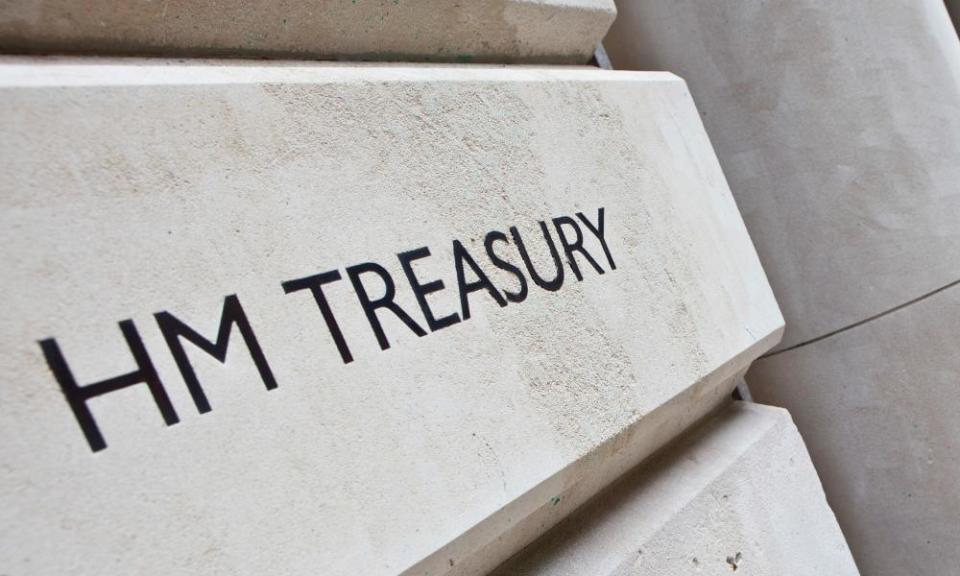Infected blood scandal: government expresses 'sorrow and regret'

The government has expressed its “sorrow and regret” at the contaminated blood scandal and accepted that the infected blood inquiry will have to investigate allegations of “cover-ups” within the NHS.
Addressing the hearing at Church House in Westminster, central London, Eleanor Grey QC, for the Department of Health and Social Care, said there was a legacy of distrust among victims that would have to be overcome.
Her comments came towards the end of the third day of preliminary hearings before the inquiry adjourns and starts taking evidence after Easter next year.
“Many of those who suffered contamination with infected blood and their affected families and friends do not trust the Department of Health or individuals who have worked in it over the years,” Grey said.
“There have been eloquent statements about breaches of trust experienced as well as many reminders of what may, at worst, have been a cover-up or at best a lack of candour about past events. There’s been repeated mention of the destruction of documents, both government papers and medical records,” Grey added. She said that was a matter for the inquiry to investigate.
“This is the beginning of a journey to uncover what happened but it begins with an expression of sorrow and regret,” Grey said. “We welcome this public inquiry. The prime minister when she first announced the establishment of the inquiry spoke of an ‘appalling tragedy which should never have happened’.”
Doctors in the NHS do not seek to intentionally harm their patients, she said. All but a “very tiny proportion” are motivated by a desire to help and treat patients. “This inquiry will put a mirror before any professional and government figures. That mirror may reflect uncomfortable truths. It will reveal the gaps between aspiration and the reality of what was experienced by the infected.”
That may be a difficult experience for many witnesses, Grey said. “We would look to the inquiry to create ... a space which enables learning and reflection [for] those it seeks to call to account. Public inquiries should not be a safe space but a space that allows candid reflection.”
Charlie Cory Wright QC also offered apologies on behalf of NHS Blood and Transplant. He said: “We, too, are very sorry for what happened to all those infected, to all those affected and to all those who are victims.” The inquiry is likely to uncover facts that are “seriously unpalatable”, he acknowledged.
Earlier, the inquiry was told that key government documents are being withheld from victims of the contaminated blood scandal despite freedom of information rights. Steven Snowden QC, who represents hundreds of core participants, accused the Cabinet Office and Treasury of conspiring to evade legitimate requests.
He said one campaigner had applied for files from the Treasury and Cabinet Office about the cost benefit of treatments and policy relating to the medical crisis.
The campaigner, Jason Evans, eventually obtained a list of documents, one of which was a Treasury file dating back to 1991 dealing with health risks relating to haemophiliacs. The department declined to release the document on the grounds that it would be too expensive.
“He then asked for the first 20 pages,” Snowden said. That request effectively went unanswered. “He then requested the release of any communications between departments in relation to his original request.
“He got 30 pages of emails between the Cabinet Office and Treasury discussing how to respond to his request. We desperately hope the inquiry will meet with a more cooperative response.”
Snowden claimed files were disappearing within the NHS. “There are still problems with trusts destroying individual records,” he said.
Snowden is instructed by Collins Solicitors. Des Collins, a senior partner at the law firm, said: “It is not for government departments to ask the Cabinet Office to decide which documents can be made available to whom and when. A freedom of information request of this nature should not be granted at a civil servant’s discretion.”
The inquiry is investigating how thousands of people, some with haemophilia, were given blood products from the US carrying HIV, hepatitis C and other viruses. Some products were made from blood donated by prisoners and drug addicts who were paid.
Peter Burney, an unrepresented core participant, told the inquiry he was given two blood transfusions, in 1975 and 1986. “I became unwell in March 2009. Medical staff treated me like I was an alcoholic; that was wrong. My family was told I would not make it to Christmas. A ‘do not resuscitate’ was placed against my name.
“Then it was removed and I was placed on the liver transplant list. I was then suspended from the list because if a liver came up that weekend, I would not have survived the procedure. I was diagnosed with end-stage liver disease and I was in a very bad state. I am now hepatitis C clear. Demand a test. It could cost you your life.”
Closing the preliminary hearing, Sir Brian Langstaff QC, the former high court judge who chairs the inquiry, said: “These three days [of hearings] have made this scandal visible … This inquiry has shown a spirit of enthusiasm, cooperation togetherness. Rest assured that tomorrow morning I will be hard at work ... and we shall stay hard at work until the job is done.”

 Yahoo News
Yahoo News 